Bespoken Word – how doing less means you can do more
Guy Kesteven suggests it’s time to slow down and do less if you really want to go faster and do more
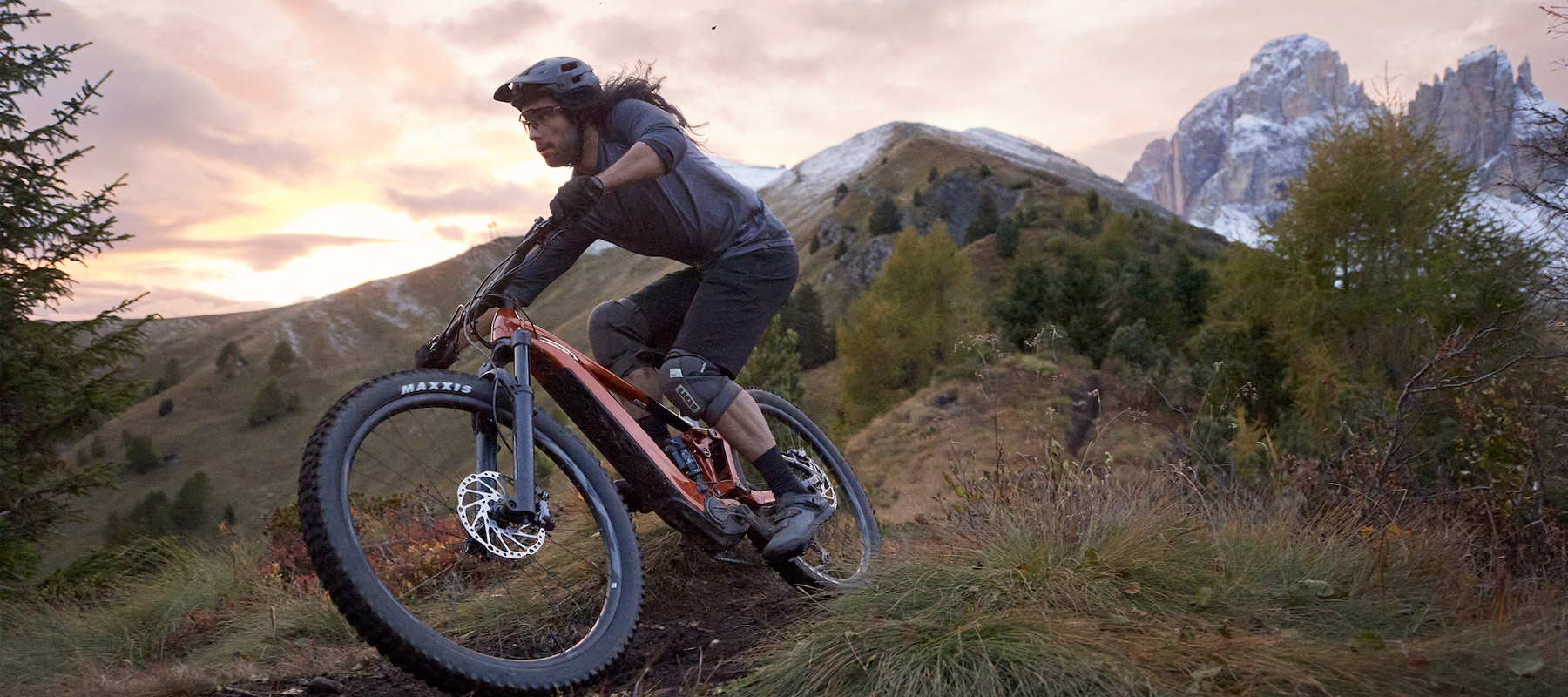
To be honest this is more of a much-needed note to myself than a public service announcement but I reckon I’m not the only one who needs to back off a bit to give themselves enough room to go forward. And there’s a whole load of reasons for that too.
Enough Already
There’s a whole load of stress in our daily lives for a whole bunch of reasons. Whether that’s the cost of living, availability of stuff, Covid coming on strong again, politics, war, planet endangering ignorance, or the implications of America being taken over by its own version of the Taliban. And that’s without the more mundane stuff like trying to get work done before/after holidays or frantically trying to fit in maximum riding now the days are getting shorter again and the trails are vanishing under rampant undergrowth.
It’s enough to give me the hives just typing it out.
Fight or flight
And many of us will respond to stress and pressure in the classic ‘fight or flight’ style, grabbing our bikes and blasting as hard as possible to put everything else out of our minds. And there’s no doubt that sending that first drop on a trail or charging a climb ‘blood in lungs’ hard can release a flood of feel-good endorphins and cortisone to kick start a sense of biking bliss that’ll blank out all the other traumas. Mountain biking is better for enforced mindfulness than almost anything else too, because there’s always a tree, berm, rock, or ramp that needs more immediate attention than your household budget or the decline of western civilization.
But that need for an instant fix means many of us have ridden into a skills, fitness, and potentially even enjoyment rut that’s hard to get out of. So what’s the answer?
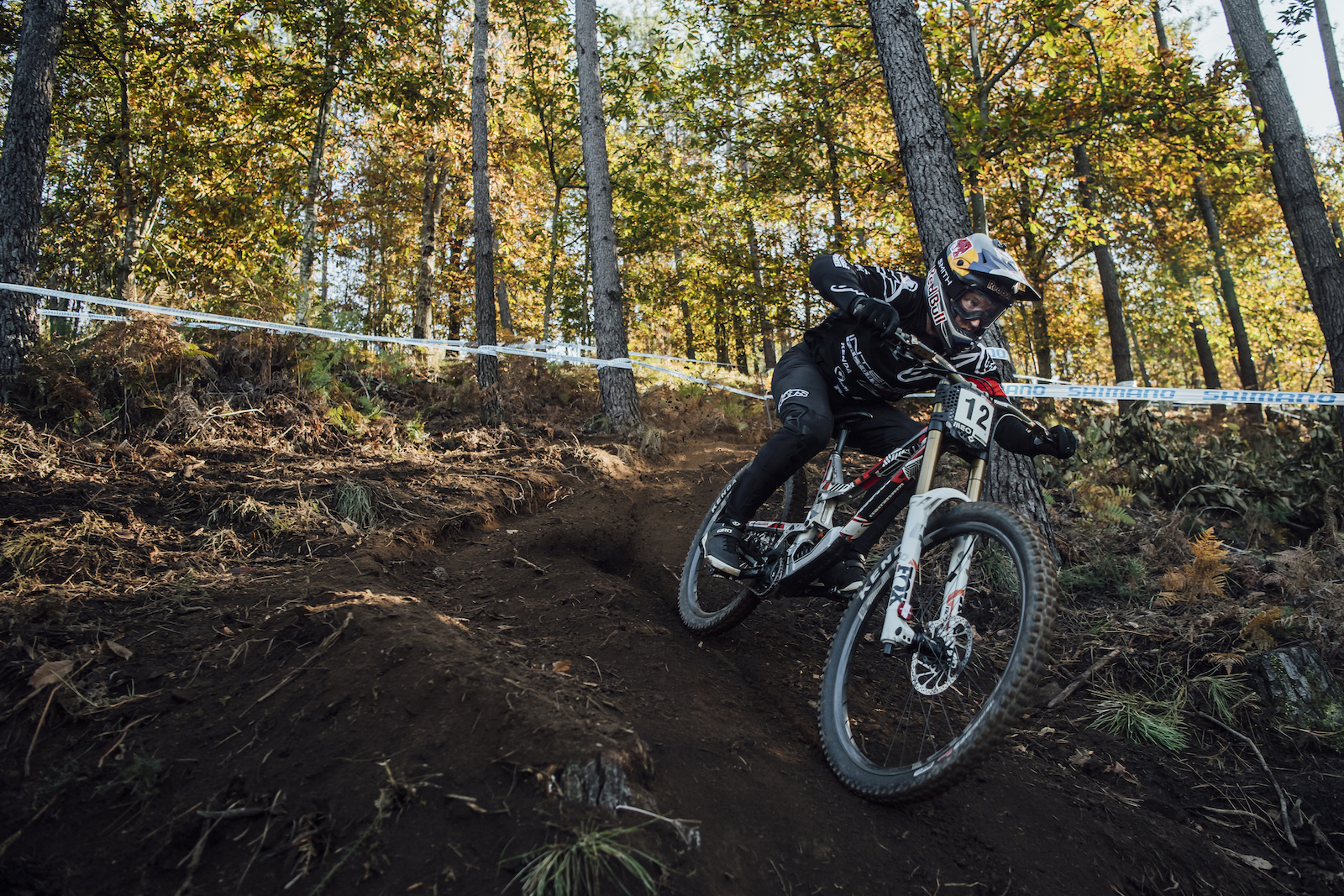
Do less
And as much as it grinds against my whole frantic impatience and go hard, all the time, every time default setting, the answer is to back off and do less. Because potentially it’s only by giving yourself some space and energy back that’ll you’ll actually move forward rather than turning frustration about your riding into a stressor, not your savior.
From a basic riding point of view, just pedaling and braking less makes a massive difference.
If you’re not trying to jab in pedal strokes between turns or features, the bike will be able to roll much smoother and you’ll be relaxed not jazzed when you get to that next turn or feature. Without stressing about gears and pedal clearance you can pump and play with the trail instead, finding speed in the shapes and definitely keying into the flow of the trail more.
If you’re not pedaling frantically at things, you and the bike will be more settled, rather than out of breath and out of shape. That means it’ll set up easier for the corner, rock heap, drop - whatever the feature is. You won’t have to brake as much so you won’t throw the geometry out of shape and I’d be really surprised if you don’t come out faster from almost all technical sections by going in slightly slower but more relaxed. After all, Aaron Gwin even won a World Cup DH race without a chain when he was at his peak.
This even works on climbs where easing off - so you can pull a hop or pop up not just ram into - a lump or ledge can be the key to cleaning a tech challenge or not. Going easier at the start will also mean you’ve got energy for the last bits and you’re brain won’t be as wired either. Or to put it another way, pace yourself. Don’t just go gonzo and burn out.
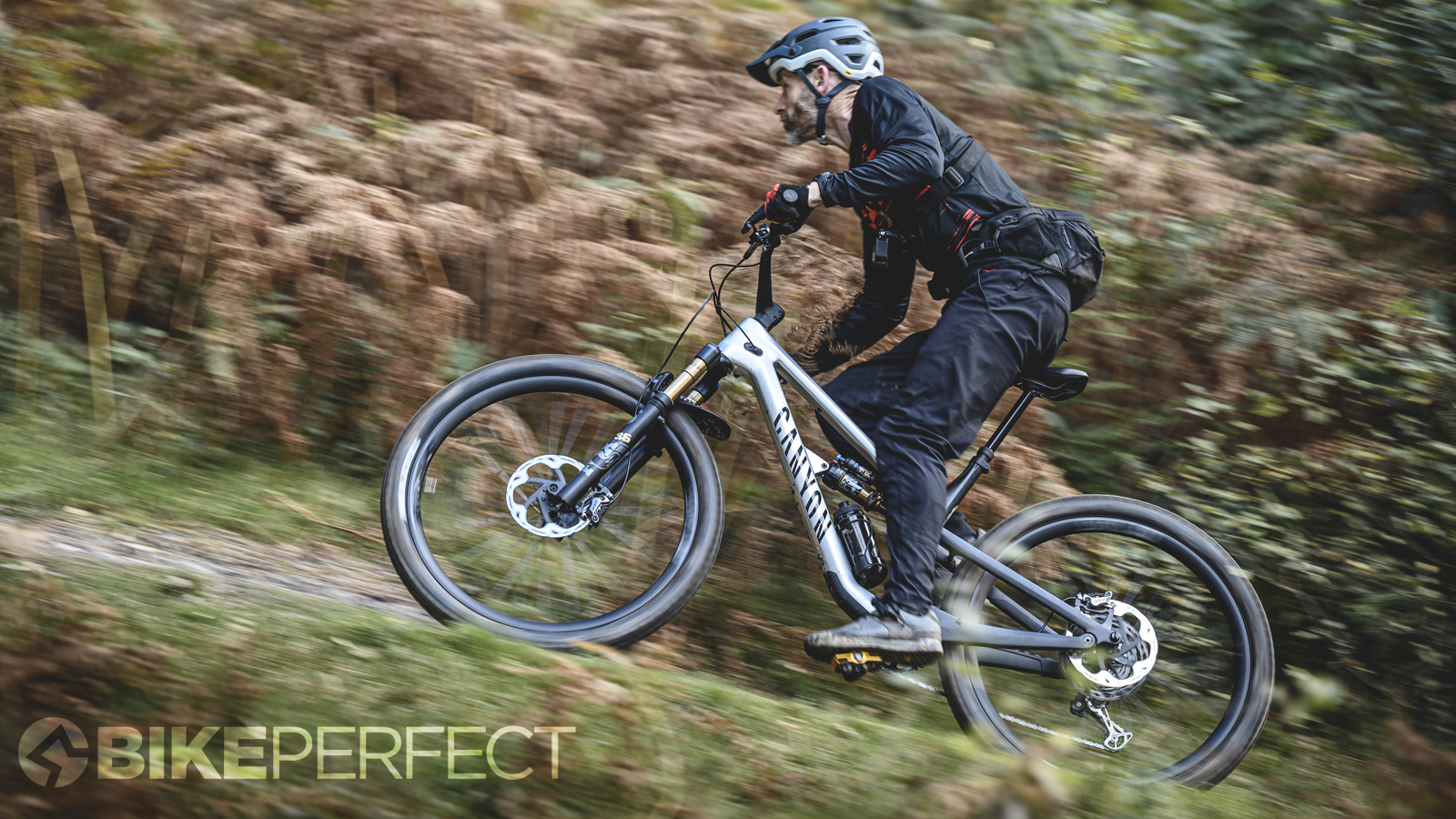
Let the bike do more
If you’re from an 80/90/00s riding background like me when bikes were tiny, unstable, erratic things. That meant we had to climb all over them like a monkey with fleas. Modern bikes are totally different though, longer, lower, and slacker and basically designed to put you right in the center of control. Suspension moves more and in a more controlled manner than ever before so you don't have to hoik and hide the bike away from every potential impact. Modern bikes aren’t even supposed to be steered, just leaned from side to side. So straighten up, drop your heels and stay there. Relaxed, chilled, tall, soft knee’d, and ready to respond calmly and economically with whatever small, essential inputs you need to make. You know, just like how sickeningly cool and calm those pro downhill racers or freeriders look as they set up for a section that most of us would think is suicidal.
Again, we’re not just talking about gravity athletes here. In fact, I’d say Mathieu Van Der Poel and Tom Pidcock are some of the most insolently chilled racers around. Both regularly stand tall on their bikes, arms and legs straight, shoulders dropped and ankles flexed wherever they can. Generally just before detonating the entire World Cup XC field and leaving them in the dust.
Whatever sort of riding you’re into, you’re also far less likely to crash or injure yourself if you learn when to rage and when to roll. That’s definitely going to make consistent progress a lot easier as well as cause less stress with the rest of your life too.
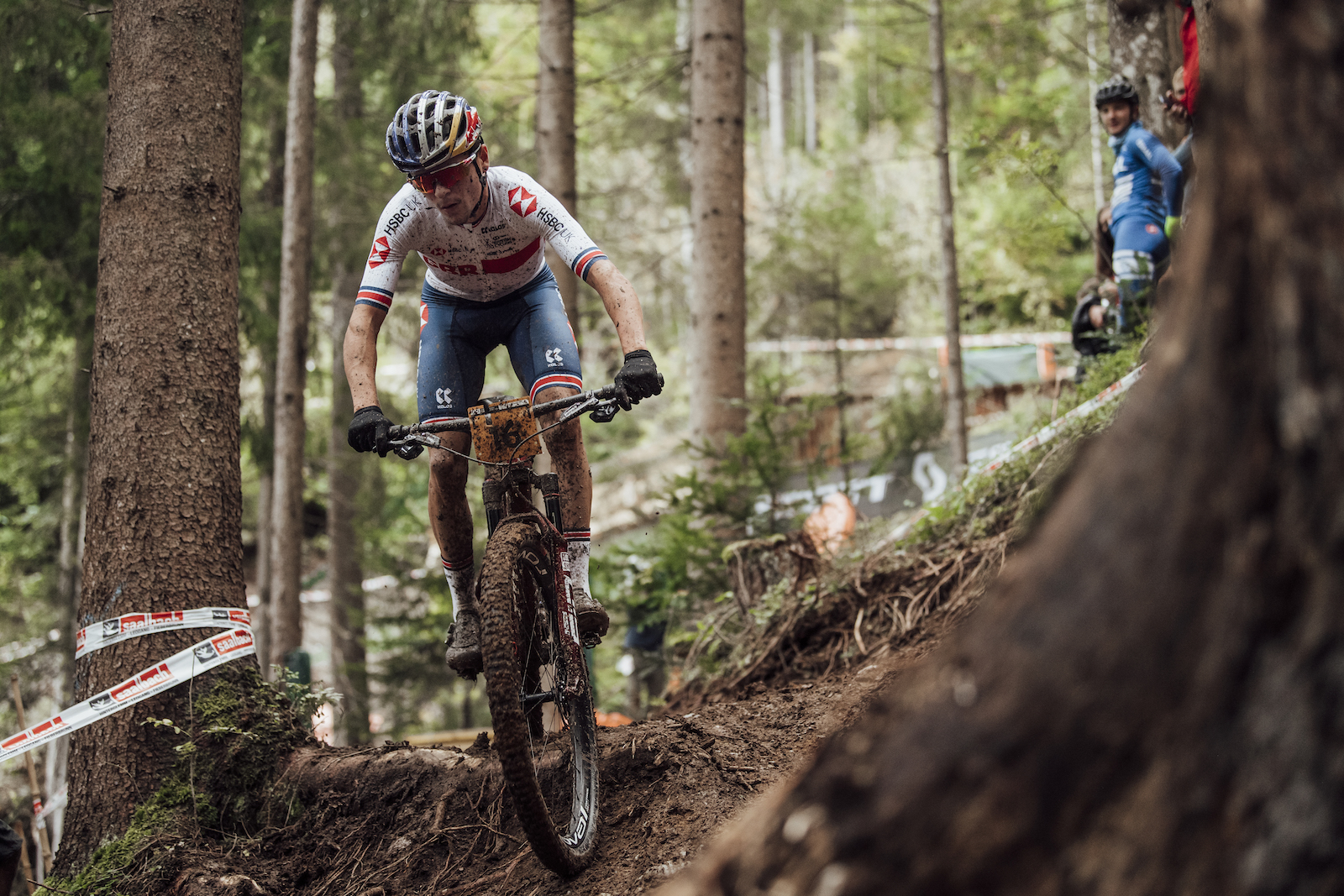
Bike yoga
And while it might seem daft, make sure you extend the relaxation as far through your body as possible. For example, you’ll be amazed at how changing what your face and breathing are doing can make a massive difference to how your whole body will react. If your teeth are clenched or you’ve pulled your mouth into a ridiculous Zoolander ‘Blue Steel’ sphincter pout, then your whole body is probably tense. So maybe try to relax your chops or even smile to reflect that you’re supposed to be having fun, not being subjected to a prison cavity search. As much as I hate to admit this kind of hippy stuff can help, you’ll be genuinely amazed how effective a happier face can ripple relaxation right out through your whole body too. Add in shoulders, hands, knees, hips, ankles, and even toes and you might unlock your whole riding chakra.
Even if you're not into the spiritual point of view, breathe deep and you’ll have more oxygen to power your next move. Rather than literally drowning and panicking behind a locked jaw. Deeper breaths will often calm adrenaline spikes and lower your heart rate too, both bonuses when it comes to consistent control and sensible decisions.
And while I struggle to stick to it, when I have tried backing off, the results are dramatic. Even relaxing for a meter on the trail will give you more energy, more focus, and more awareness on a micro level. Manage that for a full run and the gains will be even more obvious. Do it all day and those last few runs will be totally different to your normally fatigued and/or ragged and/or frustrated final furlongs. You might even notice you’re getting faster by doing less yourself and letting your bike and the trail do more.
And if speed isn’t your focus you’ll certainly be better placed - literally - to really enjoy each ride and make the most of it from a relaxation and mental health point of view. Because, whatever level your mountain bike at, it’s meant to be an enjoyable escape from everyday issues, not another slice of stress on a plate that’s already very full for a lot of us.
By the way, next week I’ll be talking about how this approach can really help with the physical and fitness side of progressing your riding too. But for once I’m going to take my own advice and do less, rather than more for once and stop this self-help session before you’re tired of it.
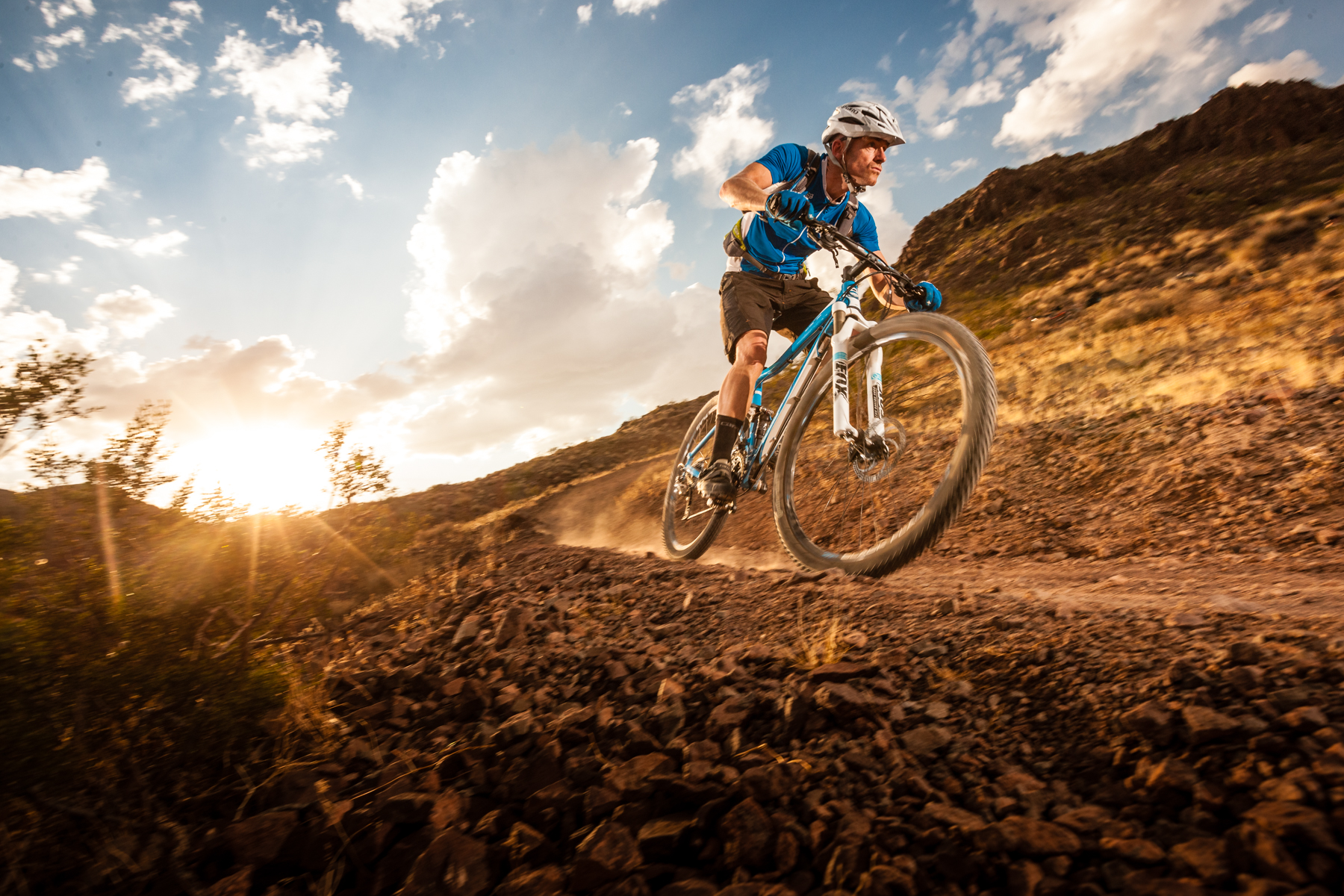
Guy Kesteven has been working on Bike Perfect since its launch in 2019. He started writing and testing for bike mags in 1996. Since then he’s written several million words about several thousand test bikes and a ridiculous amount of riding gear. He’s also penned a handful of bike-related books and he reviews MTBs over on YouTube.
Current rides: Cervelo ZFS-5, Specialized Chisel, custom Nicolai enduro tandem, Landescape/Swallow custom gravel tandem
Height: 180cm
Weight: 69kg
